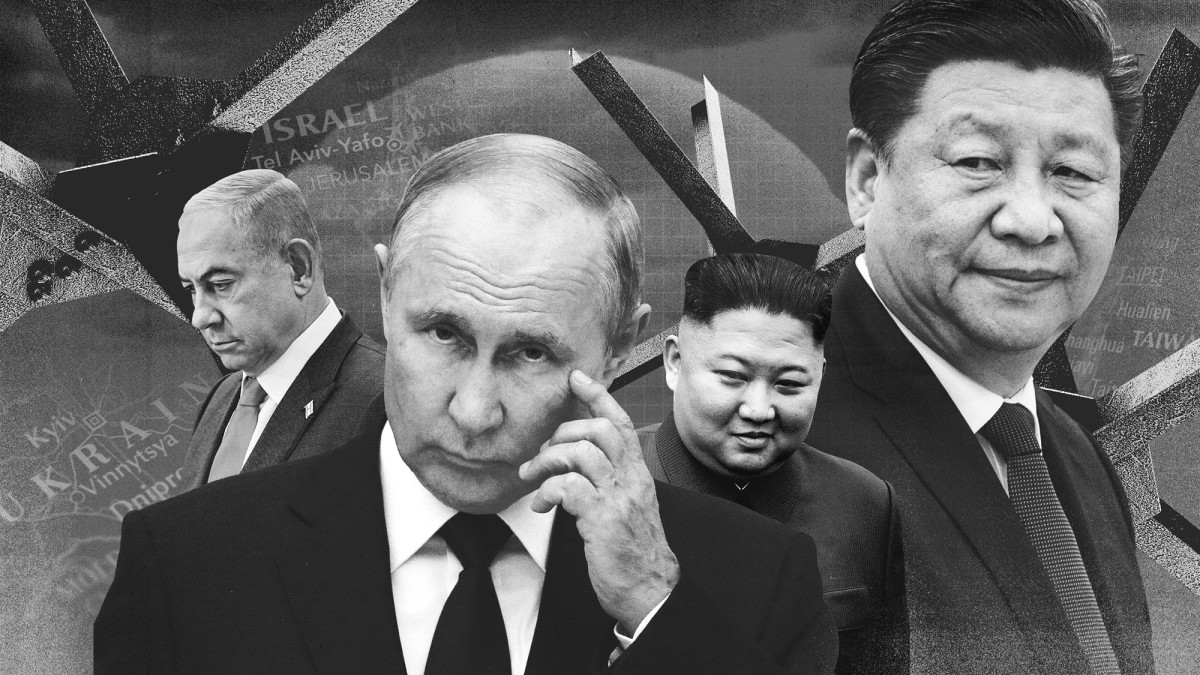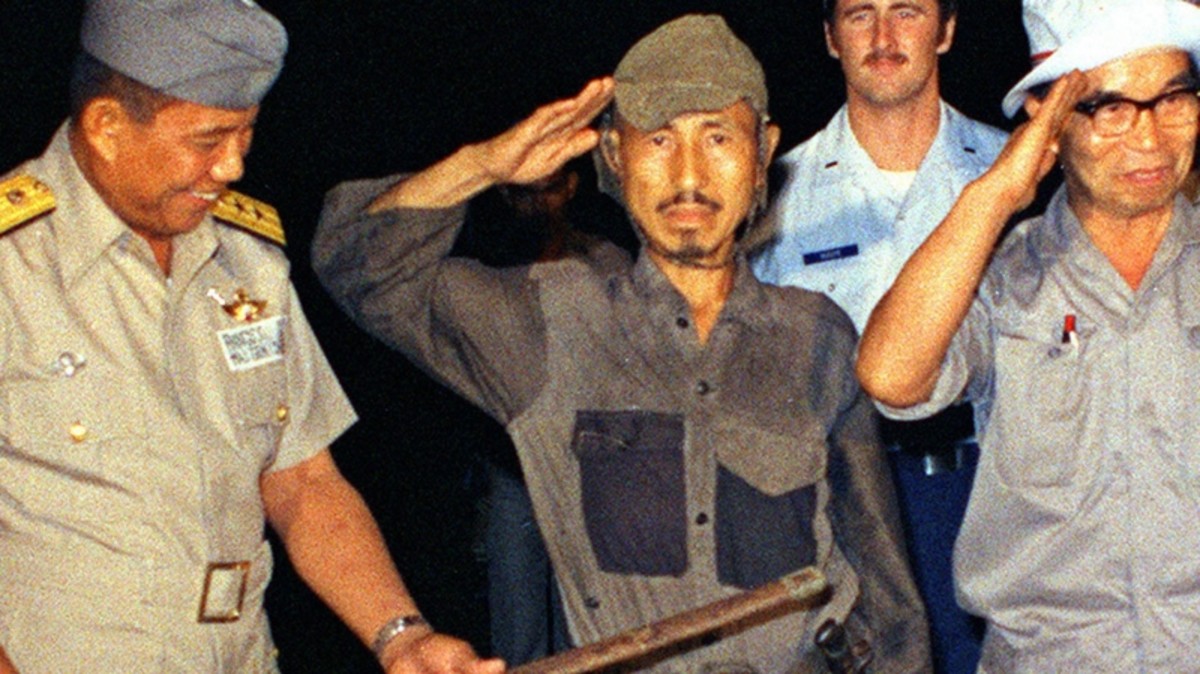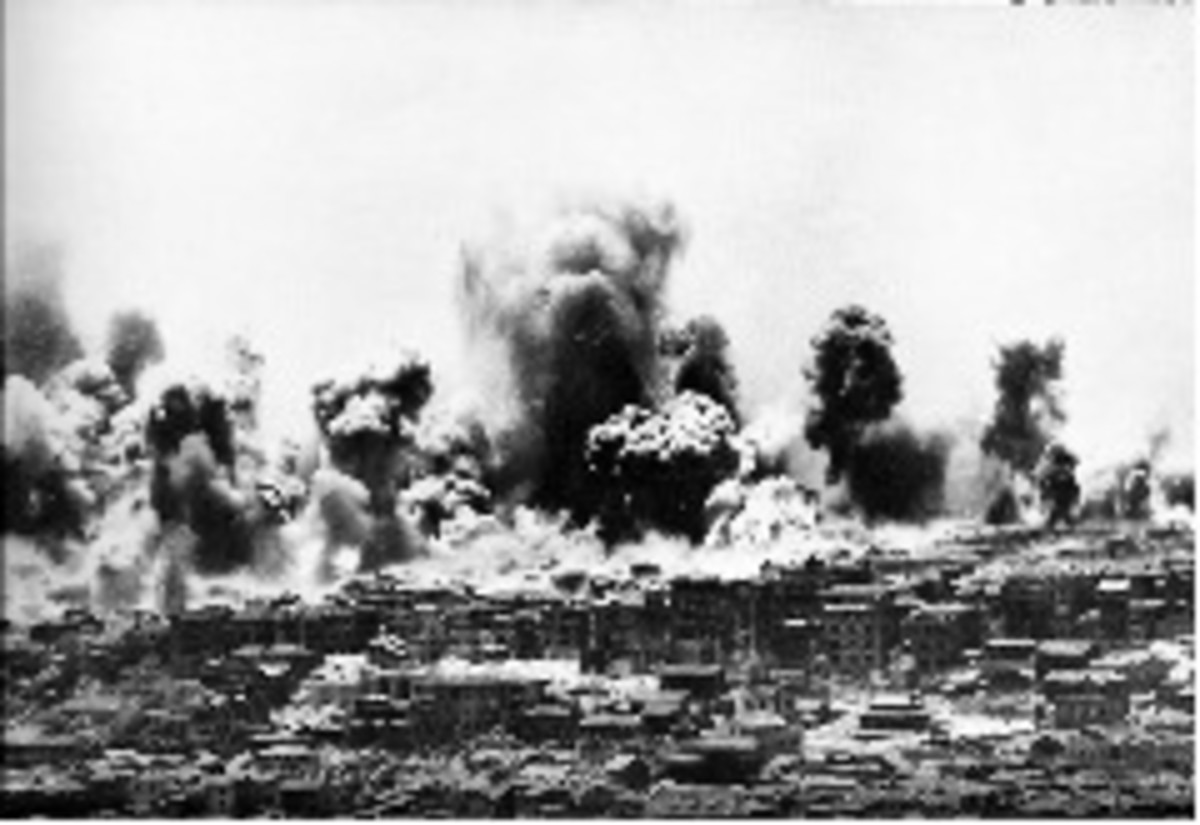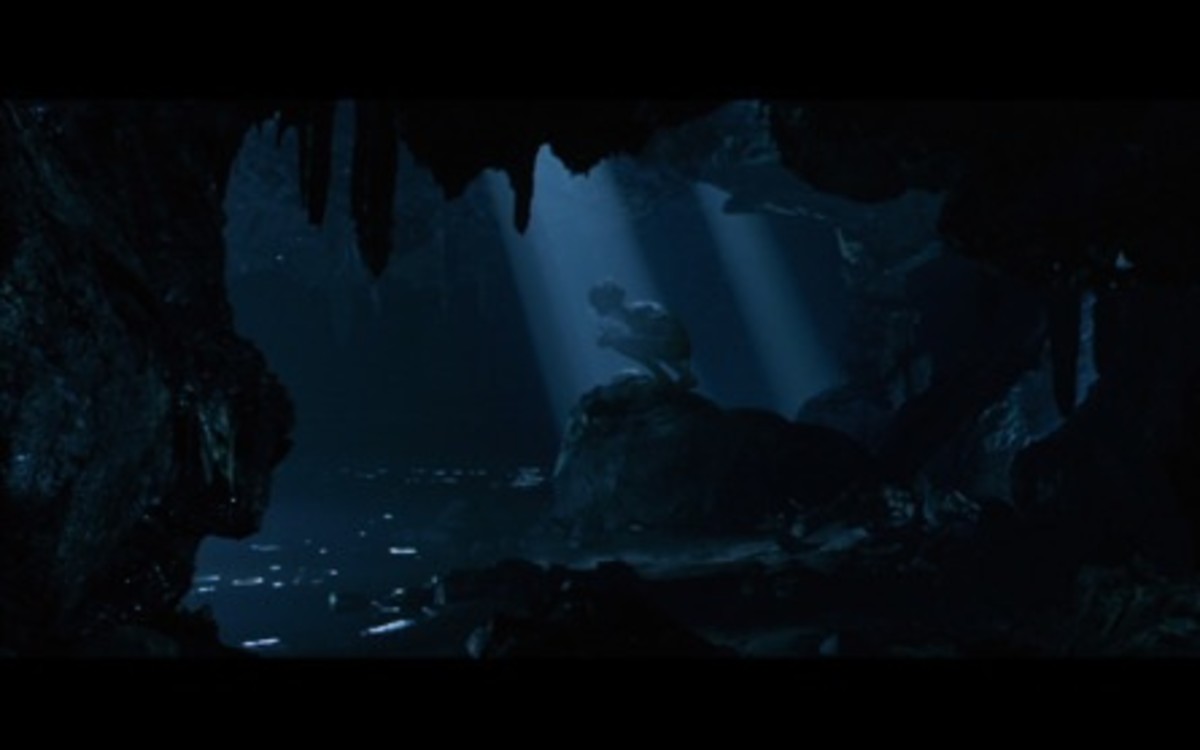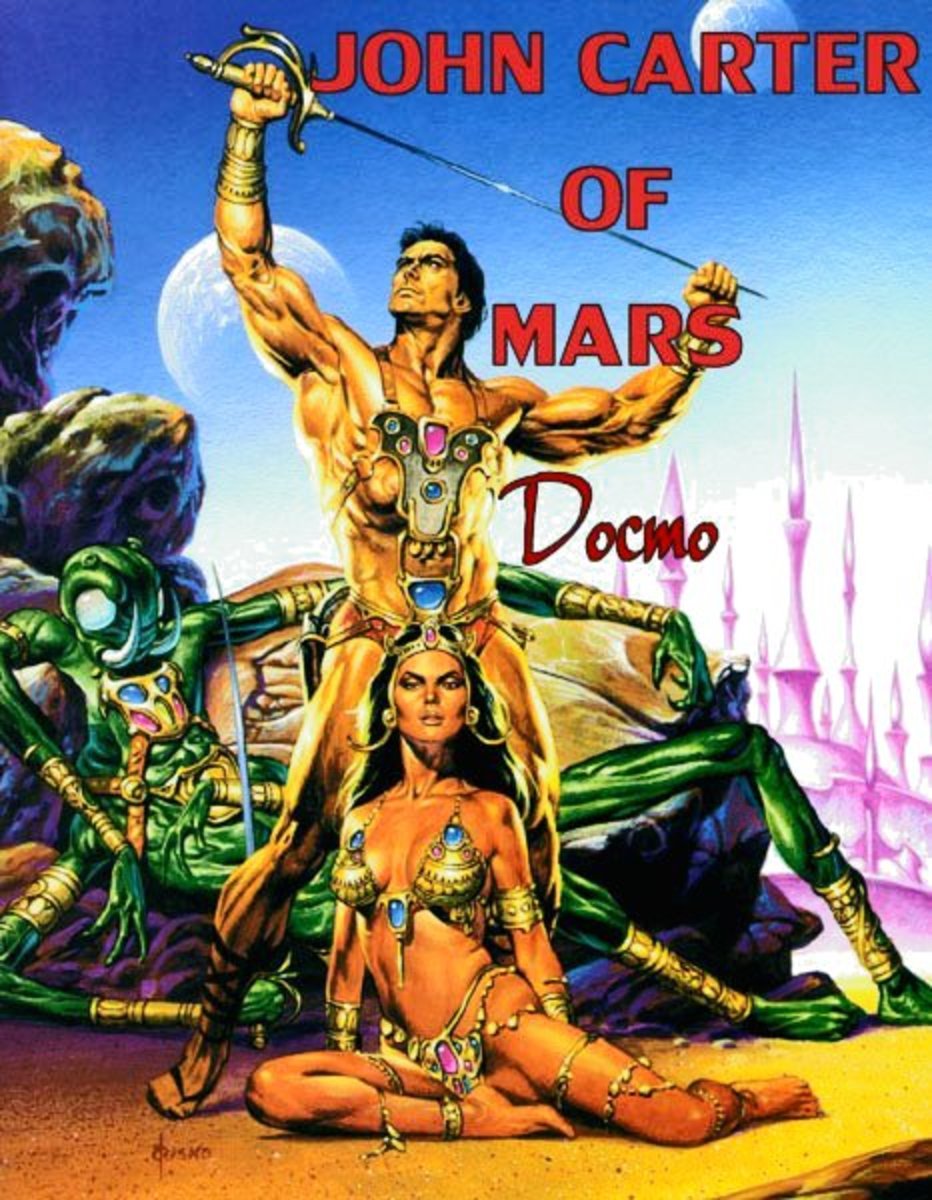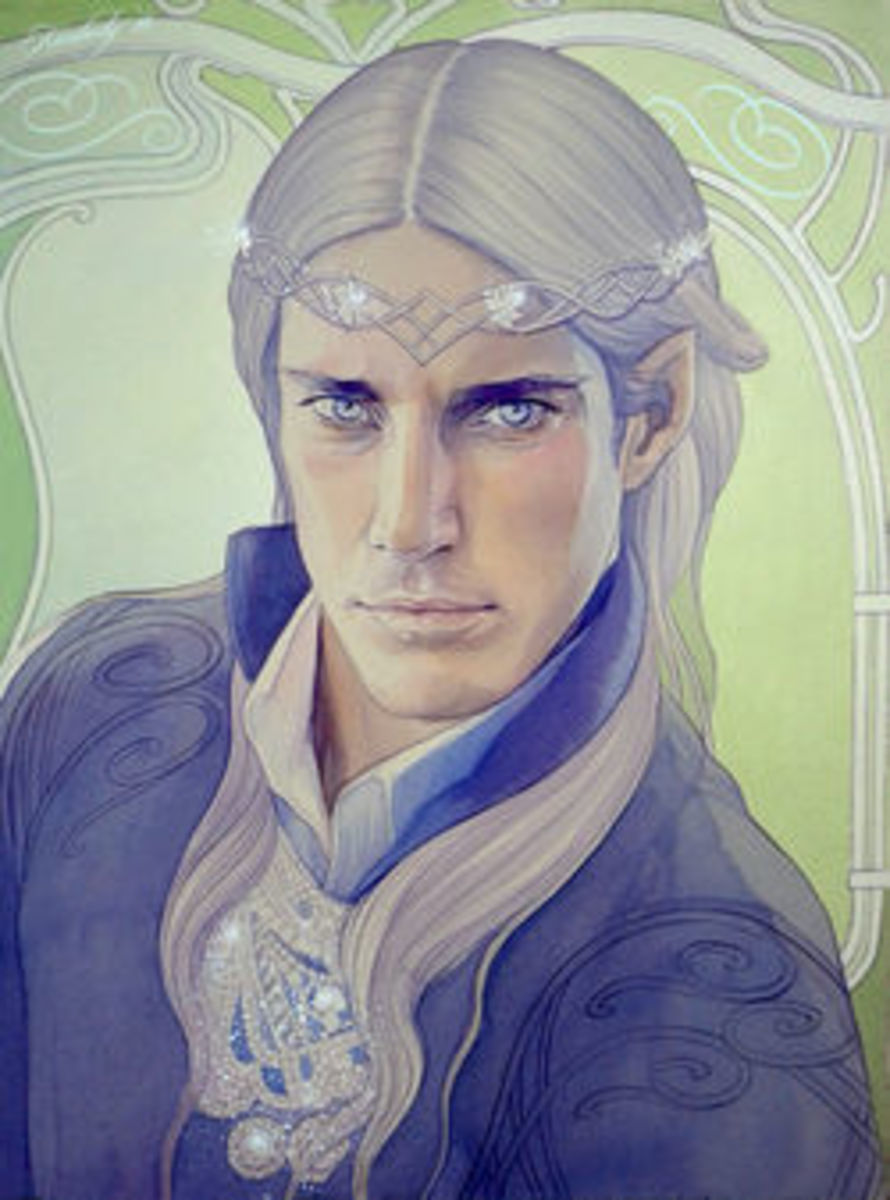- HubPages»
- Books, Literature, and Writing»
- Books & Novels»
- Fiction»
- Science Fiction & Fantasy Books»
- Fantasy
Game of Thrones and the Nuclear Bomb
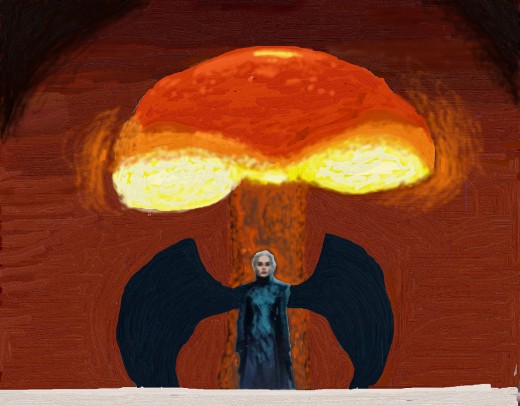
This article will have spoilers from the series Game of Thrones. So if you have not completed watching it, or have never seen it and plan to watch the series in the future, I advise reading no further. You could always bookmark this article and read it later.
The destruction of Kings Landing didn't just horrify the characters in Game of Thrones, but the audience who watched it as well. Daenerys, the queen who everyone saw as the savior who would take back the Iron Throne and usher in an era of unprecedented peace and prosperity, instead decided to ride her dragon over the city and burn ever man woman and child. Her armies slaughtering any civilian able to make it out of the inferno. Kings Landing had already surrender. It's armies had laid down their arms. Daenerys had won. But she still deciding to kill the millions of residents of Kings Landing. She called it "Liberating the city".
The final episode had her shocked backers walking through what was left of Kings Landing. The buildings in ruin. The streets littered with thousands of charred bodies. And what looked like snow. Winter had finally reached the South. But it wasn't really snow. It was the falling ash of the millions incinerated by her dragon. They had thought Daenerys was good. They had fought to put a decent ruler on the iron throne. But Daenerys turned out to be a monster. They were fooled. We were fooled. This was her true nature. A mass murderer. A tyrant looking to rule the world. A mad queen.
Of course, calling Daenerys a mad psycho queen looking to murder anyone refusing to bow to her with her dragon may be too rash. Daenerys did have a sane reason for destroying Kings Landing. It is possible that once she had succeeded in conquering the world that she would have settled down and ruled as the benevolent queen everyone hoped for. The liberation of the slave countries of Essos had been a dry run for her eventual conquest of Westeros. There she had millions of former slaves who loved her and called her queen. But even with most of the population on her side, the slave owners immediately took back the cities she liberated once her armies left. She tried ruling over the continent as queen, but even then former slaves backed by former slave owners sought to have her killed. There were still mini rebellions.
In Westeros there were no slaves to free. The people despised her. Even after she sacrificed one of her beloved dragons and most of her army defending the North from the White Walkers and their army of dead, the Northerners still spat at her. Even after making peace with their long time enemies the Wildlings, they still looked at her as a foreign invader. Daenerys realized she could never hold the Iron Throne if the population didn't love her. Holding the throne in Essos was nearly impossible even though the masses did love her. So her only option left was fear. The destruction of Kings Landing was a warning to the rest of Westeros. Obey me or be destroyed.
It was very optimistic to think that even if Daenerys' rule resulted in peace and prosperity that she would be accepted and loved. Optimistic that she would even be a competent ruler. She may have needed the threat of dragon apocalypse to stay on the throne. And the only way to insure this was a demonstration of the dragon's destructive power. In Daenerys' eyes the death of millions was necessary for her rule to be accepted, and unless her rule was accepted then she could never usher in a golden age of freedom and prosperity for all. The old adage "the ends justify the means". The death of millions justified by the better life of the billions. To a lesser extent this was the same rule all the other characters obeyed. For example, when Jon Snow executed men ( and one child ) who violated the rules of the Nights Watch. Doling out such severe punishment was deemed necessary as a deterrent to others from also breaking the rules. He could have easily shown them mercy, but in theory that would only delude his authority. As much as he hated having to execute fellow members of the Nights Watch, the ends justified the means. Grant it, executing a handful of men for desertion, resurrection or cowardice was nowhere as severe as executing an entire city.
Which brings us back to the images of Jon, Tyrion and Arya walking around the devastated remains of Kings Landing, each looking upon the results in horror. It is no coincidence that the aftermath of Kings Landing resembled the twin aftermaths of the destruction of Hiroshima and Nagasaki. Daenerys was guilty of burning one city. Truman burned two cities, killing twice as many innocent civilians. And yet, Truman was hailed as a hero for his actions. And to this day his decision to drop atomic weapons on Japan is considered justified by most Americans. It did end the Second World War, didn't it? The ends justified the means.
So what was the difference between Daenerys Targaryen and Harry S. Truman? Why did those closes to her plot to assassinate her within hours of the city's destruction, while there was zero attempt to impeach Truman? Perhaps because Truman was able to plead his case for dropping the bombs in a radio broadcast before the American public even knew it happen. Japan refused to surrender. The Japanese soldiers were fanatical and willing to fight to the last man, even in battles that were clearly lost. The Japanese Kamikaze pilots were willing to kill themselves flying their planes into battleships just to make sure the bombs hit the intended target. The only way to win the war in the Pacific would be to invade Japan itself and capture the Emperor himself. Which meant fighting through the entire fanatical Japanese military. And worse, every civilian on the mainland, all who would have grabbed whatever weapon the could, stick and rocks if that was all that was left, and defend the Emperor to the death. This included the old, women and children. An estimate was made, and the casualties would be in the tens of millions of lives mostly on the side of Japan. By using the bomb to force Japan to surrender, the death of a few million prevented the death of ten times that number. The end justified the means.
Americans couldn't imagine how devastating the nuclear bombs were. It would be month before the newsreels showed the destruction. Besides, Americans were still furious with Japan for the attack on Pearl Harbor. And sure enough, within days of the nukes being dropped, Japan surrendered. The pictures coming out of Hiroshima and Nagasaki may have been horrible, but it had been worth it. The war was finally over and America was victorious. Besides, it was impossible to feel sorry for Japan when at the same time accounts of Japanese war crimes in China were also making the news reels.
The only problem was that Truman's case was all hogwash. Japan wanted to surrender. They knew that Russia was about to declare war on them, and we're terrified by the prospect of Russia invading Japan. They knew surrendering to the United States was preferable than surrendering to a madman like Joseph Stalin. All the other Allied nations were in favor of Japan's terms of surrender. General McArthur was in favor of the terms of surrender. But Truman refused, citing a vow his predecessor Roosevelt had publicly made a few years earlier, that the United States would only accept an unconditional surrender from Japan. The sticking point was the Japanese could only surrender if they were assured no harm would come to their emperor. The code of their military was to protect the emperor at all costs. But not only didn't the United States agree to this term, there was talk that Emperor Hirohito was going to be tried and hung for war crimes. So the Japanese refused to surrender.
In the week leading up to the dropping of the bombs, a memo was sent to all diplomats in the South Pacific and Asia forbidding any meetings with Japanese officials, or excepting any correspondence from Japan. At the time Japanese diplomats were desperately trying to negotiate a peace treaty with the United States. The Russian army was already in China. Japanese generals were given the order to surrender without incident whenever Russian forces entered a city or province they were holding. Russia and Japan were not yet officially at war with each other, and any hostilities between the two nations would have resulted in an all out war with Russia's full military force attacking Japan from China. But with Russia inching closer every day, Japan knew the clock was running out, and Hirohito taking his chances in an Allied war crimes trial seemed like a much better option than being tried by Russia. If Japan was willing to give in to unconditional surrender, we will never know. Truman prevented any negotiations from happening.
After the bombs were dropped, peace negotiations were reopened. If the horror of the nuclear weapons was enough to get Japan to agree to an unconditional surrender, it will never be known. Because immunity from war crime prosecution of Hirohito was suddenly on the table. The United States were offered Japan the same terms of surrender Truman had previously rejected. When Japan did surrender, it was spun as their response to the nuclear weapons.
So if Truman never really did need to bomb Japan, and could have ended the second world war much sooner, then why did he drop them at all? Revenge for Pearl Harbor and any Japanese war atrocity that followed? No. Truman's reason for believing he needed to end the war by dropping the bomb was to save millions of lives. Not from the casualties from invading the Japanese mainland. But from the possibility of the Second World War expanding into a war with Russia.
America had created the nuclear bombs out of fear that Germany was building their own nuclear weapons. Fortunately, Hitler grew impatient with the progress and cancelled his nuclear program, pouring resources into what he felt was a more promising weapon, the rocket. The Allies were well aware that Europe being devastated by another World War gave Stalin a golden opportunity to invade and conquer the continent without much resistance. The prospect that the war would end with the bomb being dropped on Berlin and Hitler's ashes at the bottom of the crater was thought to be enough to deter Stalin from thinking about expanding his own boarders. But Italy and Germany were both defeated before American scientists figured out how to make nuclear weapons.
Just as feared, Russian forces continued to occupy the countries they liberated from Germany, and were facing off against Allied forces in a split in half Germany. War with Russia was feared to be eminent. Since Japan was still in the war and showed no signs of surrendering, dropping a nuclear weapon on the Japanese mainland would not just end the war, but send a clear message to Stalin that America had this terrible weapon and waa willing to use it against her enemies. The only problem was the Japanese tried to surrender before U.S. forces had captured an island close enough to Japan to launch a bomber from. For Japan it was a race against time to surrender to the United States before Russia invaded. For Truman it was a rush against time to drop a bomb on Japan before they had a chance to surrender.
Truman's announcement that he had dropped the bomb to end the war and save lives may have been a lie. But how could he explain the real reason? That he ended millions of lives in order to prevent a war that may or may not happen with one of our allies against Hitler? That would sound like the rantings of a madman. The American public could not imagine that our best military minds agreed that war with Russia was a real threat. That Truman's own advisors were telling him he needed to drop the bomb in order to prevent World War II from going into extra innings. Telling him that the ends justified the means. Americans understood they were still at war with a country that had attacked them first, and as far as they knew, refused to surrender. They could understand saving tens of millions of lives by sacrificing a few million of lives of the enemy. They would not understand saving hundreds of millions of lives of a war that hadn't begun yet. The lie didn't just make Truman look like a hero rather than a monster. It sent the message to Russia, that from now on this is what will happen to all of those who refuse to surrender to the United States. So you better not begin a war you don't want to loose.
But did the ends justify the means with Truman's decision? There was no immediate war with Russia, although it was only speculation that Russia was willing to start a war. Instead of backing down, they kept the nations they liberated from Germany and turned them into satellite nations. They even definitely built a wall down the center of Berlin. While no direct war happened, the cold war began. Americans lost lives in Korea and Vietnam, both wars within 20 years of the end of WWII. Russia built their own nuclear weapons. The Cuban Missle Crisis had the U.S. and U.S.S.R. on the verge of a full nuclear war, if not World War. Something that would have never happened if the United States hadn't let the rest of the world know nuclear weapons existed. Proxy wars, where the United States and Russia either escalated or caused conflicts by backing and arming opposing sides of opposing nations or revolutions caused the deaths of roughly 25 million, far more than who would have died if World War II lead to a war between Russia and the Allies. Not to mention the destabilizing of the Middle East by both countries backing dictators willing to be allies during the cold war.
But the real goal of dropping the bombs was to prevent a war Truman and his advisors were convinced the United States could loose. Russia could have easily invaded Alaska and sent their tanks South through Canada while the bulk of American weapons and troops were still in Europe and the South Pacific. If Stalin was contemplating using his advantage to conquer the world, and the nuclear bomb changed his mind, then perhaps causing the deaths of millions of Japanese civilians was worth it. Even for Japanese, as once the United States fell, so would occupied Japan, and Hirohito would be at the mercy of a madman.
This is all a guessing game. No one really knows the future. Just as Truman couldn't say for sure that Russia was poised to conquer the world, and if so nuking Japan would scare him off, Daenerys couldn't say for sure Westeros wouldn't accept her rule after she took the throne, or that destroying Kings Landing would force the population to bend the knee to her out of fear. What it comes down to is do you believe that doing something horrible today is justified by the good it may bring tomorrow? Every world leader faces the same dilemma when it comes to war. "Will the deaths I cause today result in a better world?" Unfortunately that was the same question Hitler asked himself, and his madness, paranoia and racial hatred convinced him everything he did was the right thing.
If Daenerys hadn't been assassinated and had succeeded in conquering the known world, she would have been remembered for how she ruled that world rather than how she achieved being the ruler. Much like how Americans seem to accept the bombing of Hiroshima and Nagasaki as ending a war and saving millions of lives, so too the destruction of Kings Landing and any other atrocity she committed would be accepted as being necessary to usher in a golden age. Is that the actions of a mad queen? Only if she kept on slaughtering the citizens of Westeros. If she truly turned bloodthirsty. If she wasn't destroying cities and everyone in them for political reasons, but because she enjoyed doing it.
The world of Game of Thrones was not very moral to begin with. Differences were settled via battles that killed thousands. Natives we're driven off their land, after which a giant ice wall was built to keep them in the arctic to fend for themselves. Of the three major religions, one burned children at the stake as a sacrifice, one arrested and tortured those they deemed sinners, and one went around assassinating people and carving off their faces. One of those religions was wiped out when Cersei trapped all it's members and it's leader the High Sparrow in a cathedral and had it blown up, along with a number of surrounding city blocks and the people who lived and worked there. Instead of putting her in jail, the people made her their Queen. And it was Queen Cersei who had her soldiers corral millions of civilians from the countrysides and place them with the city gates as hostages after Daenerys threatened to burn the city to the ground. it's a wonder anyone even recognized what Daenerys did was an atrocity.
The real reason why anyone was shocked by Daenerys destruction of Kings Landing was that everyone thought she was better than that. You could accept Cersei blowing up half the city just to get out of going on trial for screwing her own brother. That was what villains were supposed to do. Daenerys was built up to be the hero. Heroes aren't supposed to kill innocent lives. Daenerys broke that rule, so she couldn't possibly be a hero. And if not a hero then she must be a villain. A mad queen.
They say "History is written by the victors." The country that wins the war claims they were the good guys. The vanquished go down in history as the bad guys. I usually argue the point with friends that there are rarely ever a good side and a bad side in war. The Nazis being a rare exception where a foe can be called evil. That made the Allies the good guys in comparison, but doesn't change the fact that the Allies did a lot of horrific things themselves to win the war. Most wars don't really have any good guys, just conflict that could have been settled diplomatically instead settled by mass murder. But it is tempting to believe your country were the good guys in every single war they were in. Had Daenerys continued on her rampage of conquest without Jon Snow turning against her, then no matter how many more she killed would not matter. The history books of Westeros and Essos would have only remembered her as the breaker of chains. Kings Landing would be remembered as the wicked city that turned against her father and attempted to slaughter her entire family. The way we today think of Sodom and Gomorrah, accepting those cities as wicked and not thinking twice about all the women, children and elderly who died when those cities were burned. Or how those outside of Japan give little thought to the innocents who died in Hiroshima and Nagasaki.
Did the producers of Game of Thrones or George RR Martin intend to invoke the image of Hiroshima in the final episode? Who knows. But it does remind us of the moral ambiguity of war. The irony is that we go to war to make the world better. Something both sides of the conflict believe. Even the racist Nazis convinced themselves they were making the world a better place. It is that belief that some vast good will come out of winning a war that not only compels us to have wars, but to commit some of the worst atrocities which we convince ourselves are necessary evils needed to win the war or end it sooner. We are ushering in a golden age of peace and prosperity. A golden age that never seems to happen no matter how many wars we fight or how many of the bad guys are defeated. There is always another war around the corner, and overconfident leaders who think they have the best weapons in their arsenal.


